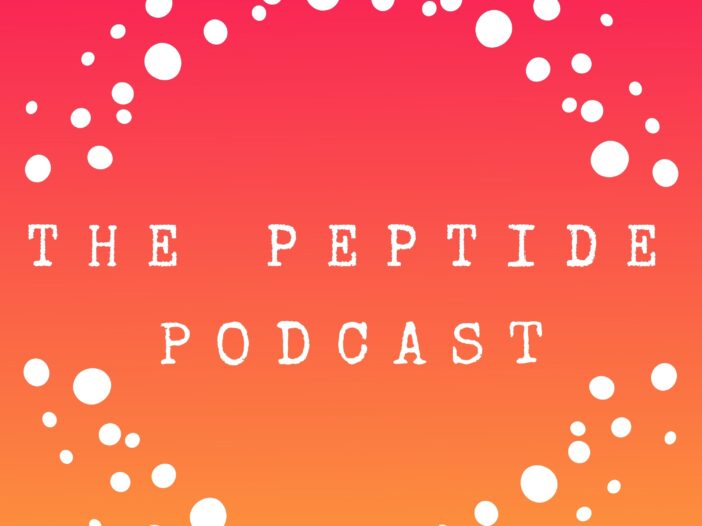
Today we’re diving into Pinealon, a bioregulatory peptide with promising effects on brain health, cognition, and aging. We’ll cover what it is, how it works, its benefits, origins, potential side effects, and how to stack it with other peptides like Epitalon.
What Are Bioregulator Peptides?
Let’s start with the basics.
Bioregulator peptides are short chains of amino acids — usually just 2 to 4 — that act as gene switches. Think of them as precision tools your body uses to fine-tune organ and tissue function at the cellular level.
These peptides were originally discovered by Russian researchers in the 1970s and 80s as part of their military and space medicine programs. The goal? To help soldiers and cosmonauts stay biologically resilient in extreme conditions.
What is Pinealon?
Pinealon is a tripeptide made of three amino acids — L-glutamic acid, L-aspartic acid, and L-arginine — and is a synthetic analog of peptides from the pineal gland, which helps regulate sleep-wake cycles and circadian rhythms. Research suggests it may help regulate gene expression in neurons and protect the brain from oxidative stress, a major factor in aging and neurodegeneration.
How Does Pinealon Work?
So, how does Pinealon actually work? Pinealon appears to cross the blood-brain barrier and interact with the central nervous system, where it may influence gene expression, support neuronal metabolism, reduce oxidative stress, and promote cellular repair — key functions for protecting the aging brain.
Potential Benefits of Pinealon
So what can Pinealon do for you?
- Improves cognitive function and mental clarity
- Helps regulate sleep patterns
- Reduces oxidative stress in brain cells
- Supports a calm and balanced nervous system
- May slow age-related brain degeneration
- Enhances focus and potentially mood regulation
Most of the research has been done in animal models and older humans, but the results so far are promising.
Where Are The Potential Side Effects of Pinealon?
Now that we’ve covered what Pinealon is and its potential benefits, let’s talk safety. While studies so far show a strong safety profile with minimal side effects at low doses, research is still limited outside of Russia and Eastern Europe. So, if you’re considering it, medical guidance is strongly recommended and use only trusted vendors or clinicians when sourcing Pinealon.
Potential side effects, while rare, might include:
- Mild headache
- Temporary fatigue
- Sleep disturbances (especially if dosed at the wrong time)
This brings me to my next point. When it comes to actually getting your hands on Pinealon, it’s a bit of a challenge. It is available in oral capsule form, but those are pretty hard to find, and there’s not a lot of transparency around who’s making them or how well they’re absorbed.
There are also a few online peptide sources that offer Pinealon as an injectable, but again, sourcing is tricky.
I’ve personally yet to find a verified, reputable supplier that I’d feel 100% confident recommending. Until there’s better regulation or more mainstream availability, it’s one of those compounds where you really need to proceed with caution.
Peptide Stacks
Okay, so we’ve explored what Pinealon does on its own — but what about combining it with other peptides?
This is where things get interesting. Peptide stacking is becoming more popular, especially for those looking to optimize cognitive function, longevity, or recovery. So let’s talk about how Pinealon might work in synergy with other peptides.
One of the most common stacks involves combining Pinealon with another well-known peptide: Epitalon.
Epitalon is also derived from the pineal gland and is known for its anti-aging effects. It helps regulate melatonin secretion, lengthens telomeres, and boosts antioxidant defenses.
Together, Pinealon and Epitalon form a neuroendocrine-immune stack that may:
- Enhance longevity
- Sharpen cognition
- Normalize sleep
- Support mood and stress resilience
Other possible stacks:
- Pinealon + Cerebrolysin – for neuroregeneration
- Pinealon + Semax – for focus and anxiety
- Pinealon + Thymalin – for immune and systemic anti-aging
The most common Pinealon dosing protocol involves injecting 2mg per day for 10 days, followed by a rest period. This cycle can be repeated 2 to 3 times per year, which means you’re using Pinealon for a total of about 30 days annually. But keep in mind that there’s no universally accepted dosage protocol for Pinealon.
Thank you for listening to The Peptide Podcast. If you enjoyed the show and want to support what we do, head over to our Partners Page. You’ll find some amazing brands we trust—and by checking them out, you’re helping us keep the podcast going.
Have a happy, healthy week!
What about dosing via nasal spray, especially for cognitive uses?
Most wellness and longevity providers typically recommend 80 mcg of Pinealon: use 1–2 sprays in each nostril daily for 5 days on and 2 days off. But be careful — some formulations also include DSIP for sleep, so it’s important to know exactly what’s in the spray and work with a knowledgeable provider to ensure the dosing is appropriate for your needs.